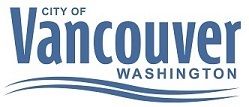| | | | | | | |  | Item #2.
|
|
| | | | | | | | | TO: |
|
| Mayor and City Council |
|
|
|
| | FROM: |
|
| Eric Holmes, City Manager |
|
|
|
| | DATE: |
|
| 9/19/2022 |
|
|
|
|
|
|
|
| SUBJECT
|
|
| Approval of a Temporary License Agreement with Michael Edward Lynch, Personal Representative of the Estate of Edward C. Lynch
|
|
| | | | | | | | Key Points
|
- Unsheltered homelessness has continually increased and has significant negative impacts on the broader community and unhoused residents themselves.
- Our community does not have shelter capacity to meet the growing need.
- The Ninth Circuit Court of Appeals has held that cities cannot criminalize camping in all places, at all times, unless there is adequate access to temporary shelter (Martin v. Boise).
- Revisions to Chapter 8.22 VMC “Camping” have been made to implement a Safe Stay Community Pilot Program.
- Establishment of Safe Stay Communities increases health, sanitation, and livability for all Vancouver residents, businesses, and visitors.
- The City has established two Safe Stay Communities, both located on city-owned property.
- Approval of this Temporary License Agreement for a Safe Stay Community on the block located northwest of the intersection of West Evergreen Boulevard and Daniels Street in downtown would allow City Staff to begin evaluation of this property as a potential location for the third Safe Stay Community.
|
|
| | | | | | | | | Strategic Plan Alignment | Objective 1.2: Ensure our infrastructure, including buildings and utilities are safe, environmentally responsible and well maintained
Objective 3.1: Strengthen community identity and sense of belonging
Objective 3.2: Improve services available to underserved or vulnerable residents
|
|
| | | | | | | | | Present Situation | An estimated 500-600 individuals reside in tents or vehicles within the City of Vancouver, which poses significant health and safety risks to the individuals experiencing unsheltered homelessness, as well as the rest of the community and the environment. At this time, our community does not have an adequate supply of shelter or housing options to meet the growing need. This Council has observed that many individuals who live outdoors on public property do so, not by choice, but due to a lack of financial means to afford adequate shelter. These individuals are adversely mentally and physically impacted by outdoor habitation.
Simultaneously, Council has also observed that the City’s sensitive ecological areas are adversely impacted by adverse secondary impacts of outdoor habitation. The City’s sensitive waterways, water treatment facilities, stormwater and wastewater facilities are particularly vulnerable to impacts of illegal dumping and improper disposal of human waste. Additionally, individuals living outdoors in greenways and wooded areas, who utilize fire as a source of heat, or to cook with, increase the potential for wildfire in those areas, particularly during our dry/summer months.
In an effort to reduce the aforementioned negative impacts of unsheltered homelessness, provide for greater safety, stability, and access to needed services for individuals experiencing unsheltered homelessness, and to remain in compliance with Martin v. Boise, staff has proposed and the Council has approved the establishment of city-sponsored Safe Stay Communities in designated areas. These Communities are managed and supported by a contracted service provider who works to:
- ensure safety and sanitation within and immediately surrounding the designated Community,
- assist Safe Stay Community residents with obtaining stability, accessing needed resources, and transitioning into a more permanent housing situation, and
- proactively engage with the surrounding neighborhood(s) to mitigate potential negative impacts to the neighborhood, facilitate neighborhood participation and volunteer opportunities within the designated Community, and encourage participation in neighborhood/community events, neighborhood association meetings, etc. amongst Community residents.
City staff have established two Safe Stay Communities, both located on city-owned property. Given the ongoing need for additional Safe Stay Communities to meet the need of unhoused Vancouver residents, City staff continue to evaluate additional properties. Staff contacted the Estate of Edward Lynch about the possibility of siting a Safe Stay Community on their property.
|
|
| | | | | | | | | Advantage(s) |
- Safe Stay Communities serve as a temporary bridge while more permanent housing and shelter options are implemented; the first 6-month review of the City’s first Safe Stay Community, The Outpost, shows that 30% of the residents served in that time period exited to permanent housing.
- Because these sites are managed, our community has seen a decrease in solid waste, encampments in unsafe spaces, and negative environmental impacts.
- Because these sites are supported, residents have greater access to services, increased stability, and more safe, healthy, and humane living conditions as they work to resolve their homelessness.
- Approval of this temporary license agreement will allow staff to continue working with the property owner and surrounding community to evaluate the property as a potential site for the third Safe Stay Community. This will include further communication with the community in the form of written notification and community forums with both City staff and the Safe Stay Community operator, Outsiders Inn.
|
|
| | | | | | | | | Disadvantage(s) | None at this time
|
|
| | | | | | | | | Budget Impact | Funding for Safe Stay communities is included in the 2021-2022 budget. Some budget adjustments may be needed in the Supplemental Budget.
|
|
| | | | | | | | | Action Requested | Approval of the Temporary License Agreement with Michael Edward Lynch, Personal Representative of the Estate of Edward C. Lynch, and to authorize Eric Holmes, City Manager, or their designee to sign said Temporary License Agreement.
Aaron Lande, Program and Policy Development Manager, 360-487-8612
|
|
|